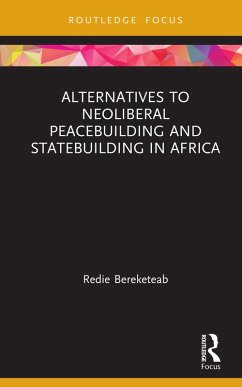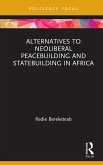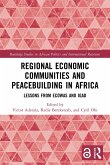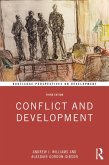The neoliberal interventionist model assumed prominence and universal hegemony following the demise of state socialism at the end of the Cold War. However, this book argues that it is a primarily short-term, top-down approach that imposes Western norms and values on conflict and post-conflict societies. By contrast, the popular progressive model espoused by this book is based on stringent examination and analysis of the reality of the socio-economic development, structures, institutions, politics and cultures of developing societies. In doing so, it combines bottom-up and top-down, popular and elite, and long-term evolutionary processes of societal construction as a requisite for enduring peacebuilding and statebuilding.
By comparing and contrasting the dominant neoliberal peacebuilding and statebuilding model with a popular progressive model, the book seeks to empower locals (both elites and masses) to sit in the driver's seat and construct their own societies. As such, it is an important contribution to scholars, activists, policymakers, civil society organisations, NGOs and all those who are concerned with peace, stability and development across Africa and other developing countries.
Dieser Download kann aus rechtlichen Gründen nur mit Rechnungsadresse in A, B, BG, CY, CZ, D, DK, EW, E, FIN, F, GR, HR, H, IRL, I, LT, L, LR, M, NL, PL, P, R, S, SLO, SK ausgeliefert werden.
"Based on a solid critique of the neoliberal model of peace-building and state-building (PBSB) in Africa, and drawing on informed knowledge of African context, Bereketeab vigorously argues for an alternative to neoliberalism. It is a timely and essential reading at a time Africans are fighting for a bright future amid multiple challenges." -- Atta El-Battahani, Professor of Political Science, Department of Political Science, University of Khartoum, Sudan
"Based on a solid critique of the neoliberal model of peace-building and state-building (PBSB) in Africa, and drawing on informed knowledge of African context, Bereketeab vigorously argues for an alternative to neoliberalism. It is a timely and essential reading at a time Africans are fighting for a bright future amid multiple challenges." -- Atta El-Battahani, Professor of Political Science, Department of Political Science, University of Khartoum, Sudan









